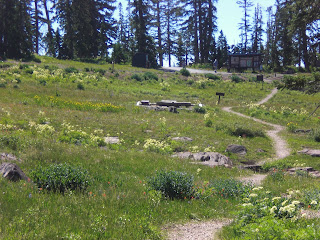Torah portion Vayikra, and he called, Leviticus 1:1 – 6:7
Be aware of our actions
It could also be said, beware of our actions. We can at
times be engaged in actions that seem to be right, but if we are to stop and
consider what we are doing, we could well recognize that they are not in
accordance with Father’s will or His plans for us.
We see an example of this recognition in our portion this
week.
If all the assembly
(aydot) of Israel shall err, and the
thing has been hidden from the eyes of the assembly, and they do that which is
not to be done to any of all the commands of Yehovah, and are guilty; when the sin shall be known, that which they
have sinned against it, then the congregation (kahal) shall bring near a bull, a son of the herd, for a sin
offering. And they shall bring it in front of the tabernacle of the
congregation. And the elders of the
congregation (aydot) shall lay their hands on the head of the bull before the
face of Yehovah. And they shall slaughter the bull before the face of Yehovah.
(Lev 4:13-15)
If All the assembly
shall err
“If all the assembly (aydot),” basically all the people, or
at least the majority, “shall err,” in other words, they have been doing
something wrong in Elohim’s eyes, but they were unaware. When they become aware
of their sin, transgression, or iniquity, they are to stop doing it, turn from
their violation, and offer sacrifice.
We learn that it is both conceivable and prophesied in this
that the entire assembly, each person, could be in violation. When it becomes
known, it is the responsibility of the congregation, kahal, translated into the Greek in the Apostolic Writings as
church to bring the sacrifice, and the elders, the representatives, of the
people, aydot are to sacrifice the bull.
How could all the
assembly err?
Why were the people allowed to get into the situation where
they as a whole were engaged in a violation of the instructions?
One possible answer is they thought they were doing it right
and nobody bothered to check back with the written instructions. Another answer
may be that they were led astray, either by one of their own group, or by
strangers who came into Israel with a “better” idea. The reason we are shown in
the Apostolic Writings is that the leadership was afraid Rome would come and
take their places and the nation; they were afraid of the government.
Return to the TaNaKh
Regardless of the reason, our responsibility is to return to
the Torah and TaNaKh and find out what Elohim says we are to do, and not do,
and change what we are doing to comply with His instructions. In Yeshua’s day,
we see a fulfillment of this prophetic instruction given in our portion.
Caiaphas the high priest recently said,
‘“You know nothing at all, Nor consider
that it is expedient for us, that one man should die for the people, and that
the whole nation perish not.’ And this spoke
he not of himself: but being high priest that year, he prophesied that Yeshua should die for that nation;”
(Joh 11:49-51)
Then, in violation of the Torah, Caiaphas tears his garment,
and the elders proceed prophetically to carry out the Torah instructions for a
sin sacrifice for the people.
Then the high
priest tore his garments, saying, He blasphemed! Why do we have any more
need of witnesses? Behold, now you have heard His blasphemy. What does it seem
to you? And answering, they said, He is liable to death. Then they spat in His
face, and beat Him with the fist, and some
slapped Him, saying, Prophesy to us, Christ. Who is the one striking You? (Mat
26:65-68)
Insurance against error
If even the elders in Yeshua’s day and in the congregation
in the wilderness can go astray and lead the people astray, even so it can
happen in our day.
We should be mindful to return often to the Scriptures and
reflect on our actions and philosophies to see they align with Father’s
instructions. In this way, in our day and culture we may be blessed to be, “The voice of one crying in the
wilderness, Prepare ye the way of Yahweh, make his paths straight.” (Mat 3:3)
Draw near
That is why we study the Torah portion every week, to become
conversant with Father’s actual instructions and to draw near to Him. As
recorded in James, “Draw near to God,
and He will draw near to you. (Jas 4:8)
Have a blessed and healthy week. Shalom.




